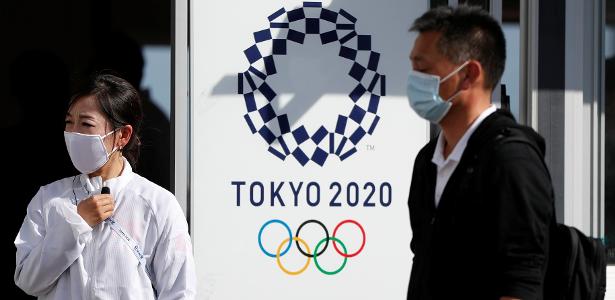Canceling the Olympics would cost Japan about R $ 90 billion

Cancellation of the Tokyo Olympic and Paralympic Games in Japan could cost 1.81 trillion yen (the equivalent of $ 16.6 billion – R $ 90 billion), according to estimates released Tuesday by the Japanese Research Institute Nomura.
However, the institute warned of greater losses if a new state of emergency is declared to deal with the peak of Covid-19 cases after the games, scheduled for July, and said that the decision to proceed with its investigation must be made before taking into account the epidemiological rather than the economic impact.
“Even if the games are canceled, the economic losses will be less than (the damage caused by) the emergency,” Takahide Kiyoshi, an executive economist at Nomura Institute, told Kyodo News.
If the sports competition were held without spectators, the resulting profit would be 1.66 trillion yen (15.2 billion US dollars), which is about 146.8 billion yen (1.34 billion US dollars – 6.9 billion BRL) less than if it was conducted in the presence of spectators in the country according to the group’s estimates.
Organizers have already anticipated that there will be no public from foreign countries and are hoping to make a decision on the presence of Japanese citizens in June.
The most populous regions of Japan, including Tokyo, are in emergency due to the fourth wave of Covid-19 in the country, although the Japanese health alert does not imply severe restrictions or impediments to commercial activity, as it is in other countries.
According to Kiyoshi’s calculations, the first emergency declaration in Japan in the spring of 2020 cost the country about 6.4 trillion yen ($ 58.7 billion – R $ 313 billion) and the second, between January and March of 2021, about 6.3 trillion yen (US $ 57.8 billion – 308 billion). Brazilian Real).
The current emergency declaration, in effect since the end of April, will generate 1.9 trillion yen (17.4 billion US dollars) in losses, an amount that could increase if the government decides to extend it beyond May 31, according to various local media.
“These estimates indicate that the decision to hold the Games or not, as well as limit spectators, should be made on the basis of the impact on the risk of injury, and not from the point of view of economic losses,” said Kyuchi. Member of the Monetary Policy Board of the Bank of Japan.
Games organizers and the Japanese government argue that the event can be held safely, while surveys show that nearly 80% of Japanese would prefer not to host them this year, largely due to concerns about the impact on the infection and the health system. . The country’s health is already under strong pressure.

Typical creator. Subtly charming web advocate. Infuriatingly humble beer aficionado.








